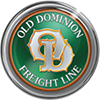There’s no question that the way shippers work with their freight carriers has changed dramatically in the last decade, and even in the last year.
We know that product demand can change rapidly. Shippers are looking for partners that can not only move their product quickly to remain competitive, but can also scale if necessary – a tough ask in a capacity-crunched marketplace. And with ever-changing supply chain issues, shippers need a partner that can also serve as an advisor to help them weather unexpected challenges.
That’s why your early conversations with a potential carrier should be scrutinized. What questions are they asking or not asking? What promises are they making? Do they have the resources to follow through? Here are a few signs that your relationship with your carrier will be a positive experience:
1.) They’ve done their due diligence.
You can tell so much about a potential carrier from the way they conduct meetings. They should be asking open-ended questions to gather as much information about your freight as possible, but ideally they should also come to the meeting with some background research on your business and your customer base. The most productive conversations are not around price, instead, conversations should be about how the carrier can tailor their services around your unique needs and bring value to your supply chain.
One great sign: they ask to look at your freight, and they spend time watching how it moves around your dock. It’s one thing to discuss a product in abstract terms, but an entirely different thing to examine its packaging and see how it’s loaded onto trucks. If the freight in question is heavy, or if it’s shipped in an odd shape, that may change a carrier’s strategy for handling the product. Seeing the freight will allow your carrier to begin load planning in anticipation of your shipments.
2.) They’re realistic about the supply chain.
Your carrier should be certain they can service your freight from start to finish. Having adequate capacity to service your shipping needs is an important conversation to have early on in the shipper/carrier relationship. At Old Dominion, we regularly talk about delivering on our promises. It’s an important business practice to do what you say you’re going to do. In the current freight environment, your carrier needs to make a firm commitment to servicing your needs and deliver on the service promised.
Further, your potential carrier should be asking questions about your delivery lanes to understand which of their solutions is best suited to your request. Understand what the carrier’s standard transit times are in lanes that are important to your business. They should also be asking about your customers, building your customers’ needs into your freight plan, and being upfront about any significant challenges they see delivering your product. Once you’ve selected a carrier, they should be continually monitoring changes to adapt delivery processes in real time.
3.) They’re using the first few months to fine-tune the partnership.
Once you’ve signed the agreement with the freight carrier you’re in the honeymoon phase – but there are still concerns that can sour the new relationship. A good carrier will monitor your shipping activity closely in the first several weeks, ensuring that there are no claims issues, no missed deliveries, and your promises are being kept. Good communication between shippers and carriers in the months post signing the agreement is an essential foundation for a great partnership in the years to come. A good partner will not wait to address known issues until you bring them up.
Look for the signs.
With increasing pressure to deliver your freight on time, there are no mulligans when it comes to choosing a carrier – wasting time on an unsuccessful onboarding can have significant costs. As you start the selection process, look for a carrier that has done their research, asks the right questions, gives you the whole picture, and keeps you up to date on the changing shipping landscape.
Contact us by email or simply call 1-800-235-5569 to be connected to an Old Dominion customer service representative.

